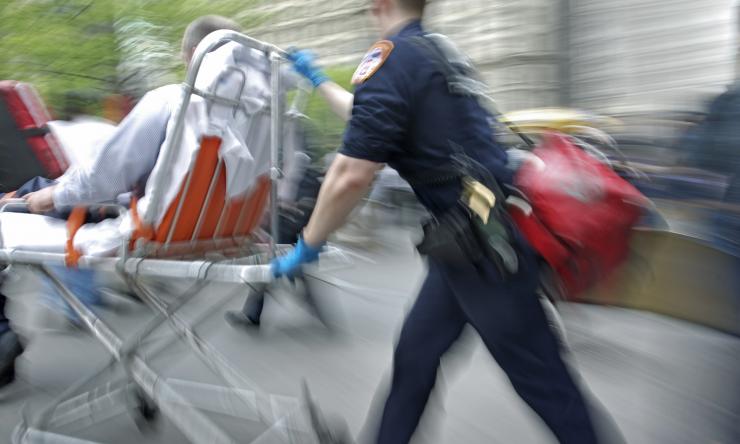Houstonians’ input on study for trauma patient who are ‘bleeding out’
Bleeding out, or the rapid loss of blood, is the most common cause of preventable death after injury. Researchers at Baylor College of Medicine and Ben Taub Hospital, part of Harris Health System, are asking for community input on whether they should participate in an international study to see if a blood-clotting drug, given soon after arrival in the emergency department, can improve survival.
Kcentra® (or four-factor prothrombin complex concentrate) is a Food and Drug Administration-approved drug that currently is used to reverse the effects of medications given to “thin” the blood for patients who experience bleeding or require surgery.
The Trauma and Prothrombin Complex Concentrate, or TAP, Trial will evaluate the effectiveness of Kcentra®, in addition to all standard care, in injured patients predicted to require a large volume blood transfusion.
“There is evidence that Kcentra® may reduce the chance of dying in injured patients who are not on blood-thinning medications,” said Dr. Chad Wilson, associate professor of surgery at Baylor and medical director of trauma at Ben Taub.
“The standard treatment of injured patients who are bleeding involves the transfusion of different types of blood products as well as the use of medications to help the blood clot better, along with surgery to stop the bleeding. But even with these treatments, up to 30% of patients suffering from a serious traumatic injury die,” Wilson said. “Finding a way to improve that survival rate is our highest priority.”
Patients in this study will have suffered a serious and potentially life-threatening injury, causing significant blood loss and requiring immediate lifesaving interventions. These types of injuries occur unexpectedly, and it will not be possible for most people to sign up to participate ahead of time. Most patients will be unconscious, unable to speak or hear and too sick to consent to immediate treatment or participation in the study. If the community feedback is positive and an independent review board (IRB) approves the study at Baylor and Ben Taub Hospital, then they will participate in this trial. Community members who do not want to participate can request a bracelet indicating this. If feasible, doctors will consent patients who fit the study criteria. If consent is not feasible, patients who fit the criteria will be automatically enrolled without their individual consent if they are not wearing an opt-out bracelet.
The TAP trial will be conducted in about 120 leading trauma centers in several countries and will include 8,000 patients, making it the second-largest trauma trial ever conducted. The trial will begin early 2023 and last until 2026, and is funded by CSL Behring, a global biotherapeutics leader, which makes the prothrombin complex concentrate.
“The results of this study have the potential to change the way trauma patients are treated,” Wilson said. “If we can determine that Kcentra® is safe and effective for trauma patients, we can transform the standard of care for bleeding trauma patients and save thousands of lives.”
The researchers are asking for feedback from the Houston community about this study to help determine whether the community wants to participate in this study. To share feedback about this exception from informed consent study, please complete the anonymous Baylor TAP Trial Survey.
Find more information on the TAP Trial in English.










